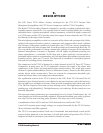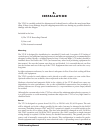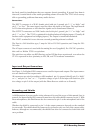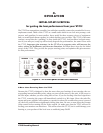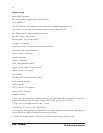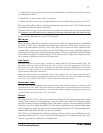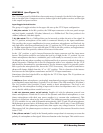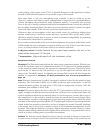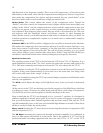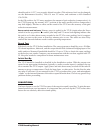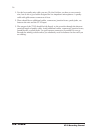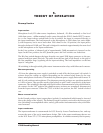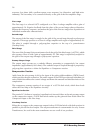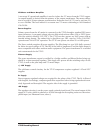
D.W. FEARN
VT-15 Recording Channel
23
es the polarity of the output of the VT-15. A detailed discussion of the application of phase
reversal of individual microphones is beyond the scope of this manual.
Even when there is only one microphone being recorded, it may be useful to try the
“Reverse” position of the Phase control. Although there is supposed to be standardization in
polarity throughout the professional audio equipment industry, it is possible that a wiring
error or the use of vintage equipment built before standardization may reverse the polarity in
the recording/monitoring chain. The effect of reversed absolute polarity is subtle, but signif-
icant with some sounds. If the “Reverse” position sounds better, use it.
With more than one microphone on the same sound source (or picking up leakage from
another sound source), the Phase switch may have a profound effect on the audio quality.
Whichever position sounds best is correct. A check of monaural compatibility (by summing
the various mics) should also be performed.
For a vocalist monitoring his or her voice in the headphones, the position of the Phase switch
will drastically alter the performer’s perception of their own voice. If there is no other reason
not to, try both positions of the Phase switch to see which is preferred.
6.
Mic/Inst switch: Switches between the rear panel input connector (for mic or line
input) and the front panel 1/4” Inst jack.
7. Preamp Gain: Adjusts the input level, mic, instrument, or line.
Compressor Controls
Threshold
The Threshold control adjusts the point where compression begins. With the con-
trol all the way down, there is no compression and the VT-15 operates as a straight amplifier.
As the control is turned clockwise, the amount of compression increases. This can be moni-
tored on the VU meter (in the GR position), or by ear. The input level will also affect the
range of the Threshold control, so adjusting the Preamp Gain control will also change the
amount of compression.
However, for best performance, use the set-up procedure on
page 19.
Gain Whenever compression is applied, the signal is reduced in level by the amount of gain
reduction. The Gain control allows you to make up the lost gain as necessary. At the full
counter-clockwise position, the gain of the VT-15 (with no compression) is about -3dB. The
maximum gain available is about 15dB.
Attack This control adjusts the time it takes the VT-7 gain reduction circuitry to react to a
signal. It might seem that the faster the attack time, the better, but very fast attack times will
result in significant distortion on material with a lot of low frequency content (this is true of
all compressors). As the control is turned clockwise, the attack time becomes longer. Often
with percussive sounds it is advantageous to have fairly long attack times to allow the initial
transient of the sound to pass through the VT-15 without gain reduction. Experiment with the
Attack control on percussive material to see how it changes the sound. Generally speaking,
a fast attack time is best when complete control of the maximum instantaneous level is
required. This might be desirable to protect a digital input from overload. However, a more
natural sound is usually obtained with a slightly slower attack time. Long attack times can be
useful as an effect, adding power to percussive instruments.
Release The Release control adjusts how long it takes for the gain to return to normal after
a sound ceases (or drops in level). Fast release times add more energy to the sound, but can



